How to Keep Spiders Away
Using home made spider repellents
Arachnophobia is one of the UK’s top ten phobias, so it is no surprise that many of us are always looking for ways to keep spiders away from our homes. Although having some spiders in our homes can help keep other pests at bay, most of us see them as unwelcome guests. If you would like to keep spiders away from your home, read on to find out how.
Last updated - 07/10/2022
Estimated reading time - 6 minutes
Keep spiders out
The best way to keep spiders away is to not let them enter your home in the first place. Spiders will always find a way to get into your home, but you can make it a bit more difficult for them to get in by sealing any cracks and crevices in the walls and around the edges of doors and windows.
You can use caulk or weather stripping to seal cracks. Not only will this help keep spiders out, it will also help keep your home warm, so it’s a win-win!
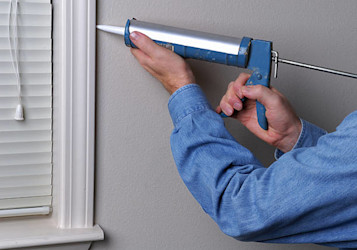
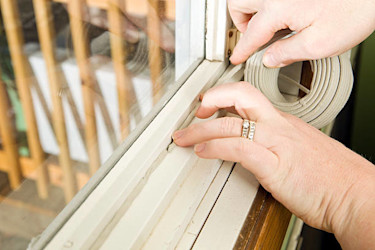
Keep your home clean and tidy
Get rid of clutter
Spiders like to hide in cluttered places, so keeping your home clutter-free will go a long way in limiting their hiding places. Piles of shoe boxes, that box of Christmas decorations that comes out once a year, neglected storage boxes, etc., all provide spiders a safe place to make their own.
Instead of storing seldom used items in cardboard boxes, store them in airtight plastic containers, and get rid of piles of old magazines and newspapers, cardboard boxes, and piles of clothes.
Dust and vacuum regularly
Spiders like dusty areas as it means the area is neglected, so it provides them with an undisturbed place to make their home and lay their eggs. This could be in less frequented areas such as the garage or storage cupboards, or in rooms that you go in every day but in the places you miss when vacuuming and cleaning, such as behind your wardrobe or sofa.
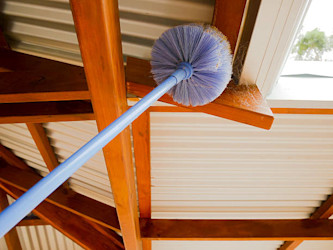
Dust and vacuum those hard to reach and neglected areas regularly and get rid of cobwebs as soon as you see them.
Clear up food
Make sure you clean up any crumbs and leftover food. Food attracts pests such as ants and flies, which in turn attracts the spiders that feed on them.
The fruit bowl is a prime location for spiders to stalk because it attracts fruit flies. Before fruit starts to go bad, eat it or put it in the fridge so it doesn’t attract pests for spiders to prey on.
Another way to keep spiders away is to add more citrus fruits to the fruit bowl. Spiders hate citrus! We’ll cover this more further down in this article.
Essential oils
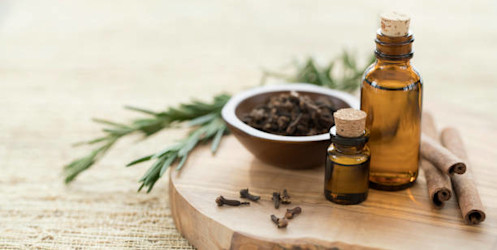
Essential oils are often used for their antiseptic, cleaning, and disinfectant properties, but they also have strong aromas that repel spiders. No one knows exactly why spiders are repelled by essential oils, but one theory is that because spiders smell and taste with their legs, they are sensitive to the strong scents given off by essential oils, so they avoid crawling through them.
The most effective essential oils for repelling spiders are:
- Peppermint oil
- Tea tree oil
- Eucalyptus oil
- Lavender oil
- Citronella oil
- Neem oil
- Cinnamon oil
Unlike harsh chemicals and pesticides, essential oils will not kill spiders. Instead, the scent will repel and deter them from areas filled with the pungent aroma.
How to use essential oils to keep spiders away
You can make a spider-repellent spray by filling a 500ml spray bottle with water and adding 10 to 20 drops of your chosen essential oil. Shake the mixture well, then spray it around your home. Spray the mixture around doors and windows, the entrance of your home, along skirting boards, along the corners of your ceiling, and anywhere else you think spiders might be.
Alternatively, you could soak cotton balls with your chosen essential oil and place them around your home. Not only will the soaked cotton balls help keep spiders away, but they will also give your home a nice fresh aroma.
As the smell of essential oils fades with time, you will need to spray your home a few times a week to keep spiders at bay. You should implement this as part of your daily or weekly cleaning routine to ensure the aroma of the essential oil doesn't fade and is still repelling spiders.
Vinegar
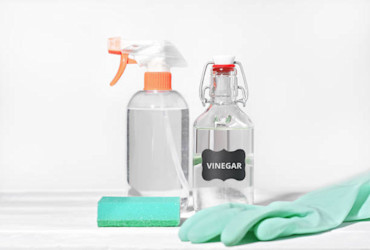
Not only is vinegar amazing on chips and a great cleaning product, it also makes for a very good spider repellent.
Unlike essential oils that only repel spiders simply because they don’t like the smell, vinegar deters spiders due to the fact that if they come into contact with it, it’ll kill them.
Vinegar contains acetic acid, which gives it its taste and odour. When it comes to keeping spiders away, acetic acid has two functions; the smell acts as a warning to spiders to stay away, and acetic acid is lethal to spiders if they come into contact with it.
How to use vinegar to keep spiders away
To use vinegar to lure spiders away or to kill them, fill a spray bottle with equal parts of water and white vinegar and shake the mixture well. You can use other forms of vinegar, but white vinegar has the highest concentration of acetic acid, so it works best.
This home-made natural insecticide is non-toxic to us and our pets, so it is safe to use around the home. Spray it around windows, around the entrance of your home, and in any dark corners and any other places where spiders may be hiding.
If the smell of vinegar is too strong, you can add some slices of lemon. Not only will this improve the fragrance of the spray, but it will also help keep spiders away, as they are not fans of citrus either.
Although the solution is safe to spray around humans and pets, it is acidic, so you should avoid spraying it on surfaces treated with paraffin or wax or on marble.
Citrus

Just like acetic acid, spiders are sensitive to citric acid. Spiders are repelled by acidic smells, scents, and tastes because if they are exposed to large doses of the acid it can kill them.
How to use citrus to keep spiders away
Rub the peel of any citrus fruit, such as lemons, oranges, or grapefruits, along skirting boards, window sills, doorways, and anywhere else you suspect spiders may lurk. Clean your home with lemon-scented cleaners and burn citronella candles around your home.
You can also make a spider repellent spray by cutting up some citrus fruits and adding them to a spray bottle filled with water.
Diatomaceous earth
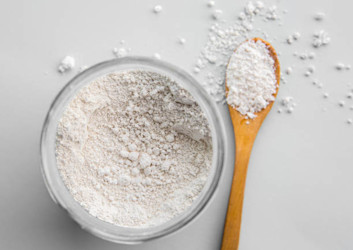
Diatomaceous earth is a naturally occurring sand extracted from the earth. Like most sand and rocks, diatomaceous earth contains a compound called silica. It is the silica in diatomaceous earth that gives it its insecticidal properties.
When a spider comes into contact with diatomaceous earth, the silica absorbs oils, fats, and water from the spider's exoskeleton. The spider will then dry out and die of dehydration.
How to keep spiders away with diatomaceous earth
Firstly, you need to make sure you buy food-grade diatomaceous earth and not filter-grade. Food-grade diatomaceous earth contains between 0.5-2% crystalline silica, which makes it safe for consumption, so you will not need to worry if pets or children accidentally ingest it. Filter grade diatomaceous earth contains over 60% crystalline silica, which is toxic to mammals.
Sprinkle some food-grade diatomaceous earth around the places you commonly spot spiders. Be careful not to inhale the powder, as long-term inhalation could irritate your lungs and could even cause inflammation and scarring of the lungs.
To avoid inhaling diatomaceous earth, you can mix a few tablespoons of the powder in a 500ml spray bottle and spray it around your home.
Conkers?...
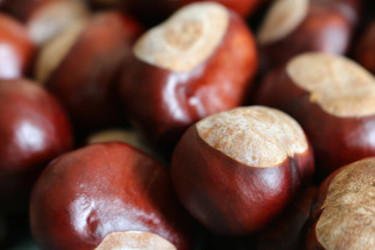
Warning
The consumption of conkers can be poisonous to us and our pets, so you may want to avoid this method if you have pets and or young children.
An old wives’ tale claims that spiders are repelled by conkers, aka horse chestnuts. Conkers contain a noxious chemical that some believe repels spiders, but there is no scientific evidence to suggest this is true. Although using conkers to repel spiders isn’t a scientifically proven method, many people swear by it, so there is no harm in putting a few around your home alongside some of the other methods outlined in this article.

